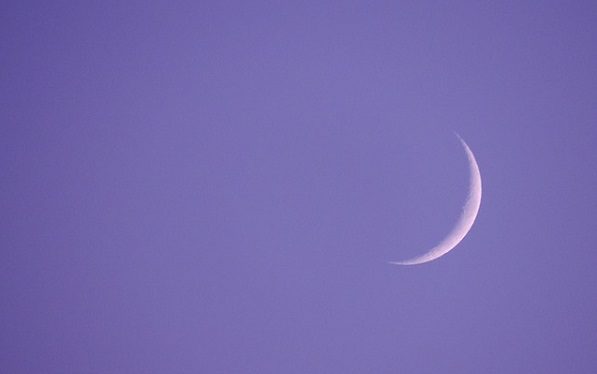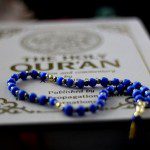This is Day 24 of the 2017 #30Days30Writers Ramadan series – June 19, 2017
By Kabir Helminski
Each year we discover new meanings and experiences during Ramadan. It seems that in Ramadan we are more open to be infused by new understandings. What was once merely a stretch of time, a challenging 30 days in which I faced my own attachments and weaknesses, has deepened into a new sense of relationship with Allah. The catalyst for this was my discovery of a Prophetic prayer, known to many Muslim children, but new to me:
O God:
It is for You that I have fasted,
and in You that I have faith,
and on You that I have relied,
and with Your provision that I have broken my fast.[1]
Previously I had considered how Ramadan helps to develop will and discernment. In a culture where we are encouraged to fulfill our desires, and abstaining from desires is usually conceived in terms of self-improvement or some long-term gain, doing something simply for the sake of God is a foreign notion. To be relieved of the strategies of the self, to acknowledge fasting as pure offering, opens a more pure-hearted relationship to the divine.
But there’s something even deeper. Whereas before I thought I would rely on my own will and willpower to accomplish the fast, I would struggle with myself to accomplish this most difficult obligation. I come to experience that Allah not only gives me the strength needed, but certain peace as well.
I am simply amazed at how the example of the Prophet opens us to new dimensions of experience and understanding. Through his example we are guided to an appreciation of divine grace and beauty. And it is only when we have experienced this grace and beauty that we come to recognize our true need for Allah.
Consider the wisdom in, “He knows all that lies open before human beings and all that is hidden from them, whereas they cannot encompass Him with their knowledge.” [Surah Ta Ha 20:110]
This verse helps to explain my own discovery of the deeper levels of fasting. There is a knowledge that comes from outside our limited human experience and infused understanding that comes from a higher level of reality.
In Surah al Furqan 25:32 we read:
The Quran has been revealed in this manner [in a series of contextual revelations rather than in one single revelation] so that we might strengthen your heart thereby – for We have so arranged its component parts that they form one consistent whole …
Just as the Quran was revealed in stages to the prophet Muhammad, we are also under going an experience of incremental understanding, opening into deeper and wider dimensions of experience.
Returning to Surah Ta Ha 20:114: “God is sublimely exalted, the Ultimate Sovereign, the Ultimate Truth: and so do not approach the Quran in haste, before it has been revealed unto you in full, but say, ‘O my Sustainer, cause me to grow in knowledge!’.” [Rabbi zidni ilmin]
As Muhammad Asad puts it in a footnote to this verse, “Since the Word of God, all its component parts – phrases, sentences, verses and surahs – form one integral, coordinated whole, … one must beware of a ‘hasty approach’ – that is to say, of drawing hasty conclusions from isolated verses or sentences taken out of their context – but should, rather, allow the whole of the Quran to be revealed to one’s mind before attempting to interpret single aspects of its message.”
Bukhari relates the famous statement of the Prophet Muhammad, salah Allahu ‘alayhi wa salam, “My analogy in comparison with the other prophets before me is that of a man who has built a house nicely and beautifully, except for a place of one brick in a corner. The people go about it and wonder at its beauty, but say, ‘Would that this last brick be put in place!’ So I am that brick, and I am the last of the Prophets.”
In Ramadan, the heart is capable of receiving inspiration (ilham), an infused knowledge, that begins to show us the deeper coherence of this Path. The word for this deeper coherence is nazm, which refers to the inimitable truth we gradually find both in the revelation and the Prophet Muhammad’s example. Gradually, too, the deeper coherence of this Path has its influence on our own souls. It is something alchemical, realigning and transforming the very substance of our souls.
Human beings are brought into the world incomplete and can only be completed under the influence of heaven. It is during Ramadan that we are disassembled and reassembled along lines truer to our innate nature, and through this process come to humbly accept our need for the Divine.
[1] Allahumma: laka sumtu, wa-bika amantu, wa-`alayka tawakkaltu, wa-`ala rizqika aftartu
Kabir Edmund Helminski (long with his wife Camille Adams Helminski) is the founder and director of the Threshold Society and has been working within the Mevlevi tradition of Sufism for about thirty years. He blogs at The Living Tradition at Patheos Muslim.















